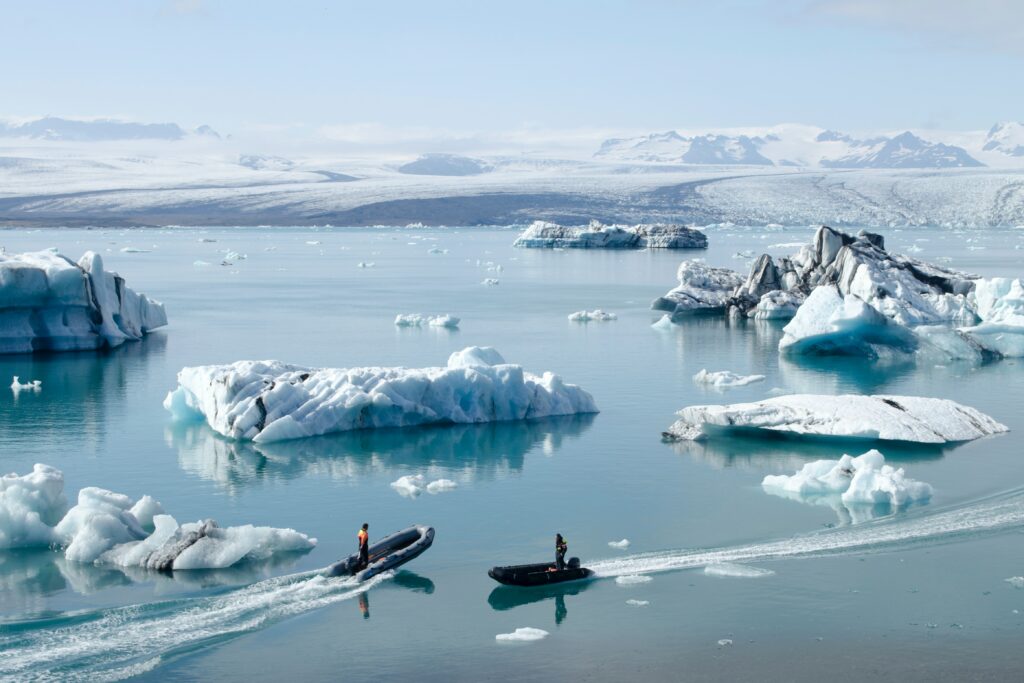COP28 is being hailed as the needed turning point for immediate climate action. The outcomes of the first global stocktake highlight possible paths to greater ambition, but a new report by UNFCCC shows insufficient progress is being made. How do countries progress on climate action and what is needed? What must be remembered is: “You cannot manage what you do not measure”.

Climate action relies on data collected across the Earth system. The largest part of that system, and the most challenging to observe, is the ocean – from pole to pole, within and beyond national jurisdiction, and from surface to the deep.
The ocean drives the Earth’s climate and provides humanity a vital service in absorbing carbon dioxide. According to the Intergovernmental Panel on Climate Change (IPCC), the ocean has absorbed about a third of carbon dioxide emissions, removing them from the atmosphere. The ocean has also absorbed 90% of the heat caused by global warming, distributing this heat around the globe and into the deep ocean. However, this great service has come at great cost. It has led to ocean warming, acidification, deoxygenation, heat waves, sea level rise, and increased intensity of extreme weather events, with detrimental impacts to life both underwater and on land.
“Despite all the harm it has endured, the ocean still offers enormous potential, not just for its own recovery, but for holistic climate mitigation and adaptation measures,” says Julio Cordano, Director of Environment, Climate Change and Oceans, Ministry of Foreign Affairs of Chile and Co-Facilitator of the UNFCCC Ocean and Climate Dialogue.
Climate mitigation and adaptation efforts need ocean data as a foundation for decision making, to enable Parties to reach the goals of the Paris Agreement and ultimately support sustainable blue economies that work with and protect nature. The Global Ocean Observing System (GOOS), led by the Intergovernmental Oceanographic Commission (IOC) of UNESCO, is working as the hub coordinating a network of instruments and people across the globe that observe the ocean to provide that data.
GOOS is collaborating closely with the World Meteorological Organization and the Global Greenhouse Gas Watch (GGGW), endorsed by the 19th World Meteorological Congress. GGGW aims to better understand greenhouse gas fluxes and make available authoritative, internationally vetted information about these fluxes everywhere on the globe. The GGGW initiative cannot reach its potential without sustained and strengthened measurements of fluxes across the ocean and deeper understanding of the carbon processes within the ocean.
A vital concept within GGGW is that of co-design – no longer just delivering data to users, but working together to design a process that provides fit for purpose operational information. Co-design is not new and is already a concept that GOOS is developing in other areas, including as part of its work under the UN Decade of Ocean Science for Sustainable Development.
The GOOS Ocean Observing Co-Design programme is setting key tools in place for users to understand the value of observations. It is advancing the maturity and robustness of global ocean observing and forecasting to deliver information effectively, while showing the cost-benefit to end users. One project has been developed by Marine Life 2030, a multi-stakeholder initiative, also under the UN Decade of Ocean Science, that is helping to provide the data needed to quantify biodiversity and deliver biodiversity indicators, as well as provide advice on policy for adaptation and marine protection.
There is one Blue Planet. Although the ocean may not be physically present in board rooms, side events or at the negotiating table, it must be present in minds and hearts. Ocean data is vital for climate action. GOOS is working to advance the ocean observing system to deliver the data nations need to navigate a sustainable future and support the global stocktake of the Paris Agreement.
We must observe the ocean like life depends on it, because it does.
Read more about ocean observations at this year’s COP28 on the GOOS website.
